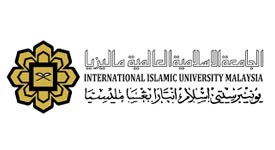
Start Chat with a Counsellor

| Study Mode | FULL TIME |
| Level | UNDER-GRADUATE |
| Duration | 4 Years |
| Intake | FEB,SEP |
The programme in Mechanical-Automotive Engineering aims to help students develop into quality graduates possessing strong foundations in engineering with Islamic values, ethics as well as management skills. In addition to the fundamental and technical requirements in Mechanical-Automotive Engineering, it has critical components of management/entrepreneurship, and Islamic revealed knowledge. The goal is to make IIUM engineering graduates competent in the design and analysis of mechanical, automotive vehicles, manage technology and conduct their profession as ethically sound engineers.
Your studies commence with the common first year. Completion of the common first year will develop your foundational skills for engineering while you sample from the various branches of engineering. In this year you will develop your skills and knowledge of fundamental engineering through completion of practical hands-on design-and-build activities. At the conclusion of first year, after experiencing the fundamentals of each discipline, you nominate your branch of engineering for further study.
After specialising in the second year you will develop an in-depth understanding of the knowledge, techniques, tools and resources appropriate for your branch of engineering, as well as skills and knowledge of the application of engineering methods required to conduct, design and manage engineering projects.
Program Outcome |
|
Students graduated from the Kulliyyah of Engineering programmes should have the ability to: |
|
| 1. Engineering Knowledge (T) - Apply knowledge of mathematics, sciences, engineering fundamentals and an engineering specialization to the solution of complex automotive engineering problems; 2. Problem Analysis (T) – Identify, formulate, research relevant literature and analyze complex engineering problems, and reaching substantiated conclusions using first principles of mathematics, natural sciences and engineering sciences; 3. Design/Development of Solutions (A) – Design solutions, exhibiting innovativeness, for complex engineering problems and design systems, components or processes that meet specified needs with appropriate consideration for public health and safety, cultural, societal, economical, ethical, environmental and sustainability issues; 4. Investigation (D) - Conduct investigation into complex problems, displaying creativeness, using research-based knowledge, and research methods including design of experiments, analysis and interpretation of data, and synthesis of information to provide valid conclusions; 5. Modern Tool Usage (A & D) - Create, select and apply appropriate techniques, resources, and modern engineering and IT tools, including prediction and modelling, to complex engineering activities, with an understanding of the limitations; 6. The Engineer and Society (ESSE) - Apply reasoning informed by contextual knowledge to assess societal, health, safety, legal and cultural issues and the consequent responsibilities relevant to professional engineering practice and solutions to complex engineering problems; 7. Environment and Sustainability (ESSE) - Understand and evaluate the sustainability and impact of professional engineering work in the solutions of complex engineering problems in societal and environmental contexts; 8. Ethics (ESSE) – Apply professional ethics with Islamic values and commit to responsibilities and norms of professional engineering code of practices; 9. Communication (S) - Communicate effectively on complex engineering activities with the engineering community and with society at large, such as being able to comprehend and write effective reports and design documentation, make effective presentations, and give and receive clear instructions; 10. Individual and Team Work (S) - Function effectively as an individual, and as a member or leader in diverse teams and in multi-disciplinary settings; 11. Life Long Learning (S) - Recognize the need for, and have the preparation and ability to engage in independent and life-long learning in the broadest context of technological change 12. Project Management and Finance (S) - Demonstrate knowledge and understanding of engineering management and financial principles and apply these to one’s own work, as a member and/or leader in a team, to manage projects in multidisciplinary settings, and identify opportunities of entrepreneurship. |
Career- Opportunities |
|
| A mechanical-automotive engineering degree prepares you for work in the aviation industry as well as in the business, management and financial sectors Jobs directly related to the degree include: Design engineer/ Automotive engineer/ Powertrain engineer/ Vehicle Dynamics Engineer/ Testing engineer/ Material Testing engineer/ Manufacturing engineer/ Structural engineer/ Water engineer/ Oil and Gas Engineer/ NDT Engineer Jobs where the degree would be useful include: Aircraft services engineer/Engineering geologist/Environmental consultant/Patent attorney/Quantity surveyor/Sustainability consultant/ Your degree is not only restricted to the jobs enlisted here. Generally the employers accept applications from graduates with any degree subject. |
Copyrights © 2024-25 Education Malaysia. All rights reserved.
